Grill Brush Alternatives: Clean Your Grill the Safe Way
Grill brushes have been the go-to tool for cleaning grills for years, but they come with their own set of risks. Bristles can break off, potentially ending up in your food and causing serious health issues. Luckily, there are plenty of safer and equally effective alternatives.
In this guide, we’ll explore various grill brush alternatives that will keep your grill clean without compromising your safety. From simple household items to specialized tools, we’ve got you covered for your next BBQ cleaning session.
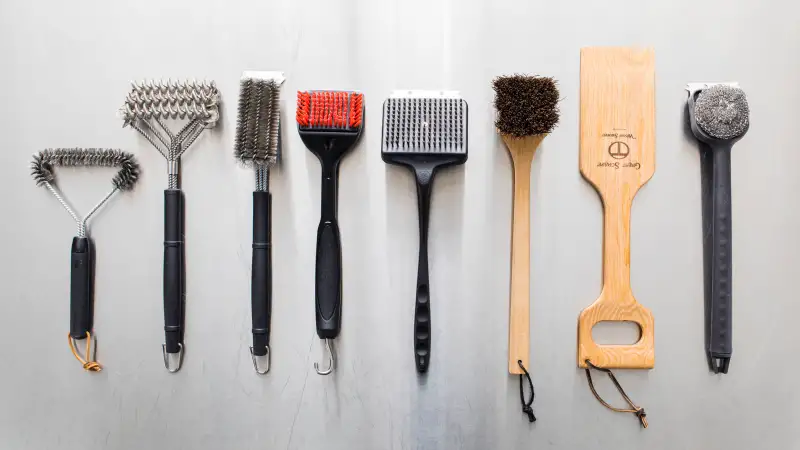
Why Seek Alternatives to Traditional Grill Brushes?
Metal grill brushes might seem like a quick fix for your grilling cleanup needs, but they come with some serious risks. The biggest concern? Those pesky metal bristles can break off and stick to your grill grates. If they make their way into your food, they can cause severe health problems, from mouth injuries to life-threatening digestive tract damage. It’s not just a rare occurrence, either—numerous cases have been reported over the years.
Common Injuries and Statistics
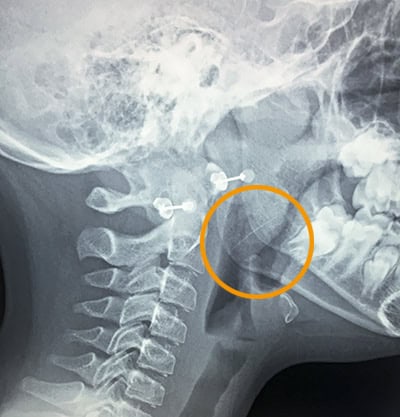
Let’s dive into the numbers and real-life stories. According to a study published in the journal Otolaryngology-Head and Neck Surgery, about 1,700 cases of injuries related to grill brushes were reported over a ten-year period in the U.S. These injuries often required visits to the emergency room. Most cases involved the wire bristles lodging in the throat or mouth, but some bristles even made their way to the stomach and intestines, causing serious harm.
The Consumer Product Safety Commission also highlights these dangers, reporting several incidents each year where individuals, including children, have suffered from wire bristle injuries. The scary part? The actual number might be higher since not all cases get reported.
In 2016, a notable case involved a New Jersey man who ended up with a wire bristle lodged in his intestine after enjoying a BBQ. It required surgery to remove. This incident, among others, has sparked calls for better safety standards and increased awareness.
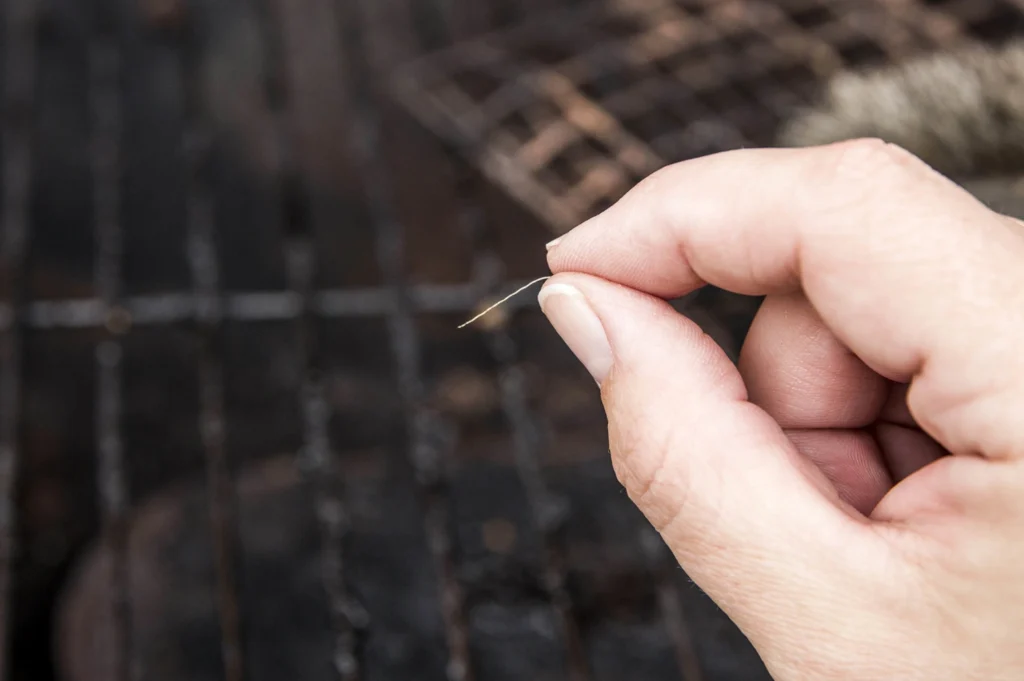
So, the takeaway here? While those metal brushes might seem efficient, the potential risks far outweigh the benefits. Time to explore safer, bristle-free alternatives to keep your grilling adventures delicious and injury-free.
Types of Grill Brush Alternatives
When it comes to cleaning your grill safely, there are several effective alternatives to the traditional metal bristle brush. Each of these options offers unique benefits and methods for keeping your grill grates spotless without the risk of stray metal bristles. Let’s dive into some of the best alternatives available.
Wooden Scrapers
Wooden scrapers are a fantastic and eco-friendly alternative to metal grill brushes. Made from hardwood, these scrapers conform to the shape of your grill grates over time, providing a customized clean. Here’s why they’re great:
- Benefits: Wooden scrapers are durable, heat-resistant, and free from bristles that could break off. They also tend to be gentler on your grill grates, preventing scratches and damage.
- How to Use: To use a wooden scraper, simply heat your grill, then scrape the grates with the edge of the wood. The heat will cause the wood to gradually conform to the shape of the grates, making cleaning more effective with each use.
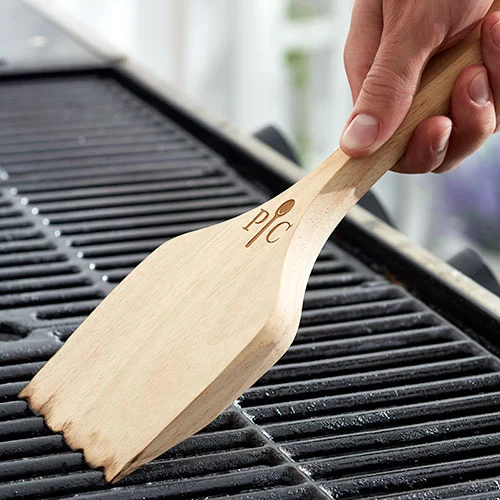
Pumice Stones
Pumice stones, commonly used in personal care for exfoliation, also work wonders on grill grates. These stones are abrasive enough to remove tough grime and residue without posing a risk to your food.
- Benefits: Pumice stones are non-toxic and safe for use on most grill grates. They effectively remove stuck-on food and grease while avoiding the hazards of metal bristles.
- How to Use: Wet the pumice stone before use to prevent scratching your grill. Gently scrub the grill grates in a back-and-forth motion until they’re clean. Rinse the grates with water afterward to remove any residue.
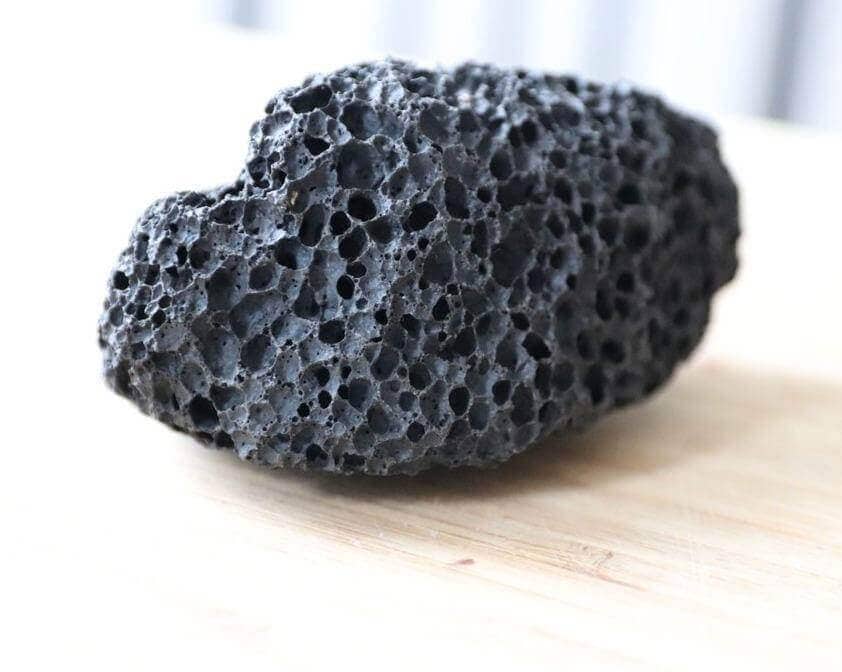
Natural Fiber Brushes
Natural fiber brushes, made from materials like coconut husks or palmyra, offer a safe and sustainable alternative to metal brushes. These brushes are tough on grime but gentle on your grill.
- Benefits: Natural fiber brushes are eco-friendly and biodegradable. They don’t shed dangerous bristles and are safe for all types of grill grates.
- How to Use: Use the brush just as you would a traditional grill brush, scrubbing the grates with firm pressure. For best results, brush the grill while it’s still warm to loosen any remaining residue.
If you prefer not to use a brush, check out our tips on cleaning a grill without a brush.
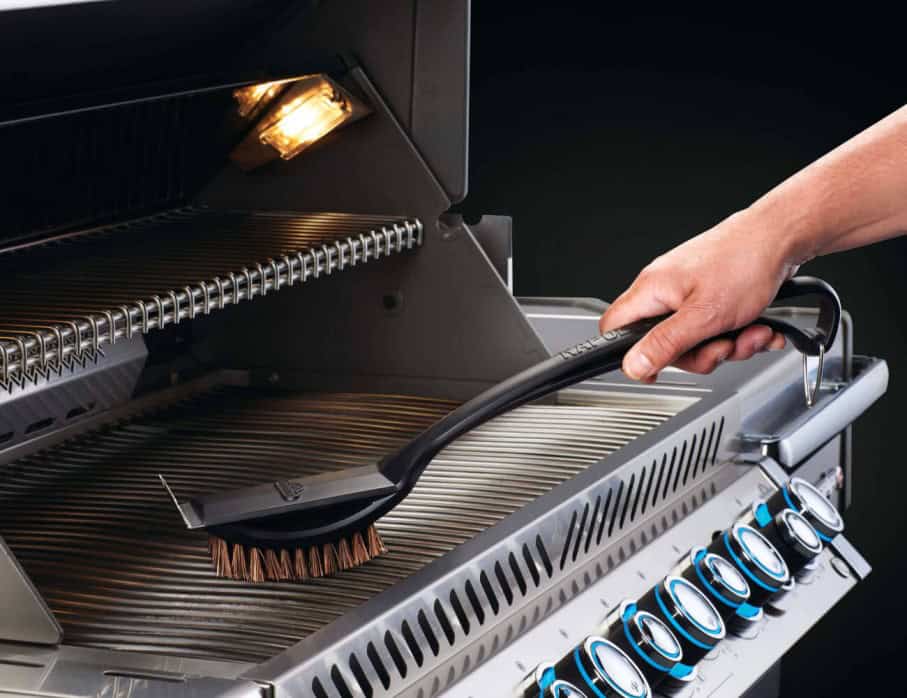
By choosing any of these grill brush alternatives, you can ensure a safer and cleaner grilling experience. Not only do these options reduce the risk of injury, but they also help maintain the longevity and performance of your grill.
How to Choose the Right Grill Cleaning Alternative
Selecting the perfect grill cleaning tool requires considering several factors to ensure you get the safest and most effective option for your needs. Here’s a guide to help you make an informed choice.
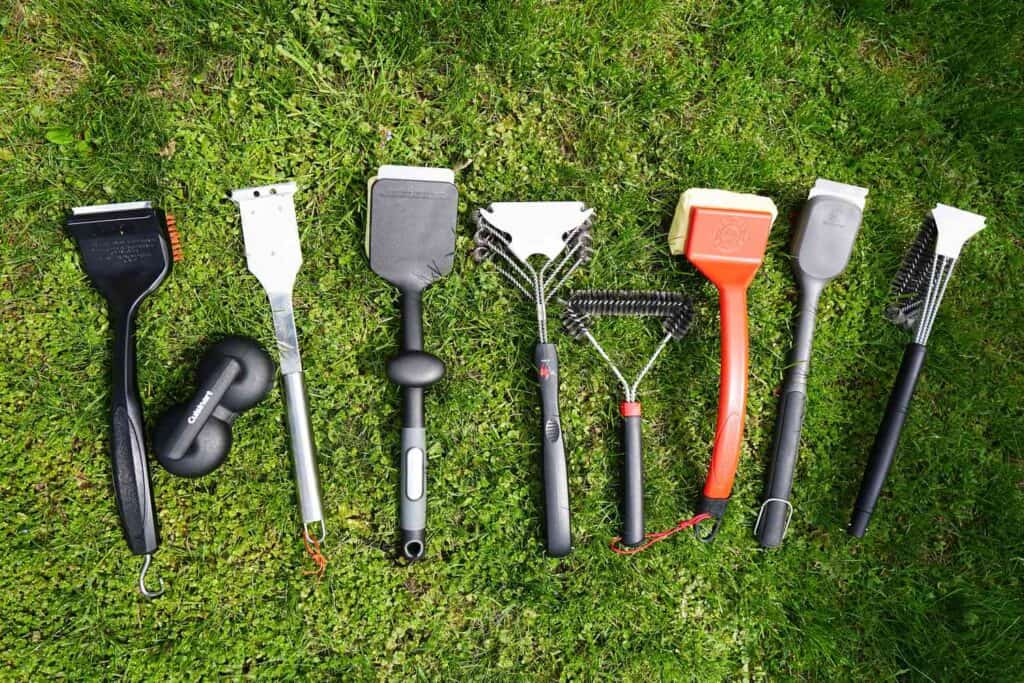
Factors to Consider
- Grill Type
- Gas Grills: Gas grills often have porcelain-coated grates that require a gentler touch. Wooden scrapers and natural fiber brushes are excellent choices as they clean effectively without damaging the coating.
- Charcoal Grills: Charcoal grills typically have cast iron grates that can handle a more abrasive cleaning method. Pumice stones are suitable here because they can remove tough residue without harming the iron.
- Material of Grill Grates
- Porcelain-Coated Grates: Avoid overly abrasive tools that can scratch the coating. Opt for softer materials like wooden scrapers or natural fiber brushes.
- Cast Iron Grates: These can endure more abrasive cleaning, so pumice stones and natural fiber brushes are good options.
- Stainless Steel Grates: Stainless steel grates are quite durable and can handle most cleaning tools, including wooden scrapers and natural fiber brushes.
- Frequency of Use
- Frequent Grillers: If you grill often, you’ll need a durable cleaning tool that can withstand regular use. Wooden scrapers are great as they get more effective over time. Natural fiber brushes can also handle frequent use.
- Occasional Grillers: For those who grill less often, a pumice stone can be a cost-effective and efficient choice. It can tackle the buildup from occasional use without the need for constant maintenance.
- Ease of Use and Maintenance
- Ease of Use: Choose a tool that feels comfortable and easy to use. Wooden scrapers are straightforward, while natural fiber brushes offer a familiar brushing action.
- Maintenance: Consider how easy the tool is to clean and store. Wooden scrapers require minimal maintenance, while natural fiber brushes should be kept dry to prevent mold.
- Safety Concerns
- Always prioritize tools that minimize the risk of leaving behind dangerous debris. Wooden scrapers and natural fiber brushes eliminate the risk of metal bristles ending up in your food.
How to Use Grill Brush Alternatives
Using grill brush alternatives is straightforward, but following the right steps ensures effective cleaning and safety. Here’s a step-by-step guide for each type:
Wooden Scrapers
- Heat Your Grill: Turn on your grill to high heat and let it run for 10-15 minutes. This loosens any stuck-on residue.
- Use the Scraper: Hold the wooden scraper at an angle and press it against the hot grates. Move it back and forth to scrape off the debris.
- Repeat as Needed: Continue scraping until the grates are clean. Over time, the scraper will form grooves that match your grill grates, improving its effectiveness.
- Cool and Clean: Once done, allow the grill to cool, then wipe down the scraper to remove any remaining residue.
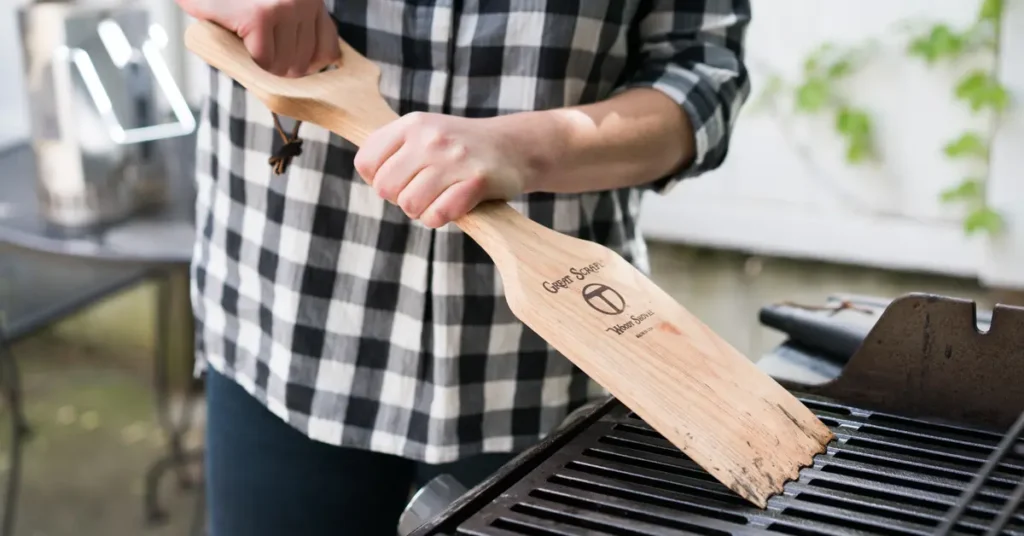
Pumice Stones
- Wet the Pumice Stone: Soak the pumice stone in water before use to avoid scratching the grill grates.
- Heat the Grill: Preheat your grill to loosen the grime.
- Scrub the Grates: Gently rub the pumice stone on the grates in a back-and-forth motion. The abrasive nature of the stone will help remove tough residues.
- Rinse and Repeat: Rinse the grates with water to wash away the loosened debris. Repeat the scrubbing process if necessary.
- Clean the Stone: Rinse the pumice stone after use to remove any built-up grime.
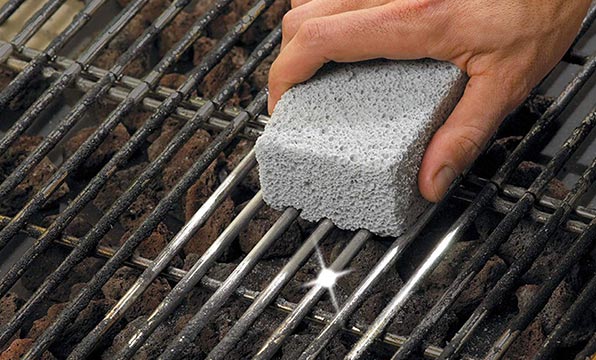
Natural Fiber Brushes
- Preheat the Grill: Turn on the grill and let it heat up to burn off excess food particles.
- Brush the Grates: Using a natural fiber brush, scrub the grates while they’re still warm. Apply firm pressure to remove stuck-on food and grease.
- Rinse the Grates: After brushing, rinse the grates with water to remove any remaining particles.
- Dry the Brush: Keep the natural fiber brush dry when not in use to prevent mold and prolong its lifespan.
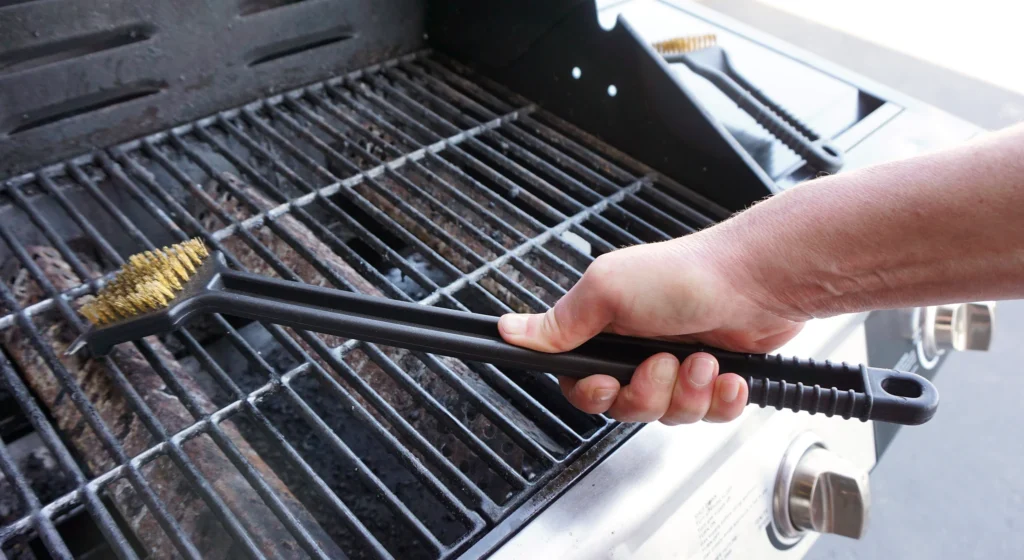
Safety Tips While Cleaning Your Grill
- Wear Protective Gear: Use heat-resistant gloves to protect your hands from burns while cleaning hot grates.
- Ventilation: Ensure your grilling area is well-ventilated to avoid inhaling any fumes released during the cleaning process.
- Use Safe Tools: Always choose cleaning tools that do not shed harmful particles, like wooden scrapers or natural fiber brushes.
- Check for Residue: After cleaning, inspect the grill grates for any remaining debris or broken-off pieces from the cleaning tool.
- Cool Down Properly: Allow the grill to cool down completely before covering or storing it to avoid any fire hazards.
- Regular Maintenance: Clean your grill regularly to prevent excessive buildup, making each cleaning session quicker and safer.
Maintenance and Care for Grill Cleaning Tools
To ensure your grill cleaning tools remain effective and last a long time, proper maintenance and care are essential. Here are some tips for keeping your tools in top shape:
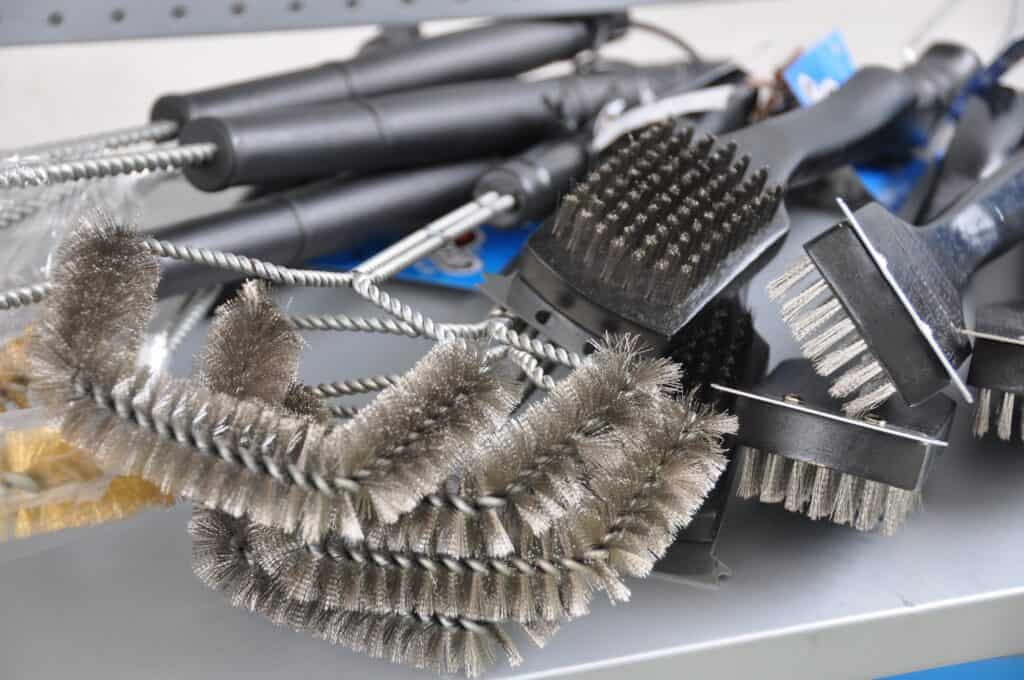
Wooden Scrapers
- Regular Cleaning: After each use, wipe down the wooden scraper with a damp cloth to remove grease and residue.
- Avoid Soaking: Do not soak the wooden scraper in water, as this can cause it to warp or crack.
- Oil the Wood: Occasionally, apply a thin layer of food-safe mineral oil to the scraper to maintain the wood’s condition and prevent drying out.
- Storage: Store the scraper in a dry place, away from direct sunlight, to avoid moisture damage.
Pumice Stones
- Rinse After Use: Rinse the pumice stone thoroughly after each use to remove grease and particles.
- Dry Completely: Allow the stone to dry completely before storing it to prevent mold and mildew.
- Replace When Worn: Over time, pumice stones will wear down. Replace the stone when it becomes too small or smooth to be effective.
Natural Fiber Brushes
- Remove Debris: After each use, tap the brush to remove loose debris and particles.
- Rinse and Dry: Rinse the bristles with water and let the brush dry completely before storing it. Avoid soaking the brush, as this can weaken the fibers.
- Inspect Regularly: Check the brush regularly for signs of wear or damage. Replace the brush if the bristles become frayed or lose their stiffness.
- Storage: Store the brush in a dry place to prevent mold growth. Hanging it up can help keep the bristles in good condition.
Environmental Impact of Grill Cleaning Tools
When choosing grill cleaning tools, it’s important to consider their environmental impact. Here’s a look at how different tools measure up:
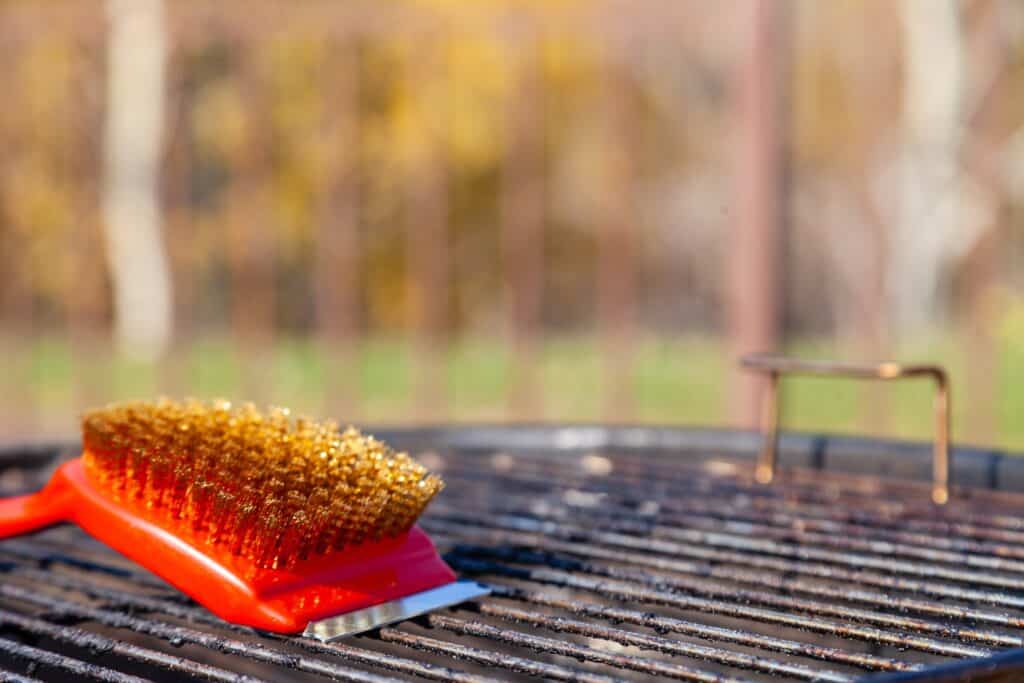
Wooden Scrapers
- Sustainability: Wooden scrapers are often made from sustainably sourced hardwood, making them an environmentally friendly option.
- Biodegradability: Wood is biodegradable, so discarded scrapers won’t contribute to long-term waste.
- Carbon Footprint: The production process for wooden scrapers typically has a lower carbon footprint compared to synthetic materials.
Pumice Stones
- Natural Material: Pumice stones are a natural volcanic rock, making them an eco-friendly option.
- Minimal Processing: They require minimal processing and don’t involve harmful chemicals, reducing their environmental impact.
- Longevity: Pumice stones last a long time, reducing the need for frequent replacements and minimizing waste.
Natural Fiber Brushes
- Renewable Resources: Brushes made from natural fibers like coconut husks or palmyra are renewable and sustainable.
- Biodegradability: These brushes are biodegradable and won’t add to landfill waste when they’re eventually discarded.
- Eco-friendly Manufacturing: The production of natural fiber brushes generally involves fewer chemicals and less energy than synthetic alternatives.
For those who still use brushes, here’s how to clean your grill brush and when to replace it.
Disclosure: Our blog contains affiliate links to products. We may receive a commission for purchases made through these links. However, this does not impact our reviews and comparisons. We try our best to keep things fair and balanced, in order to help you make the best choice for you.

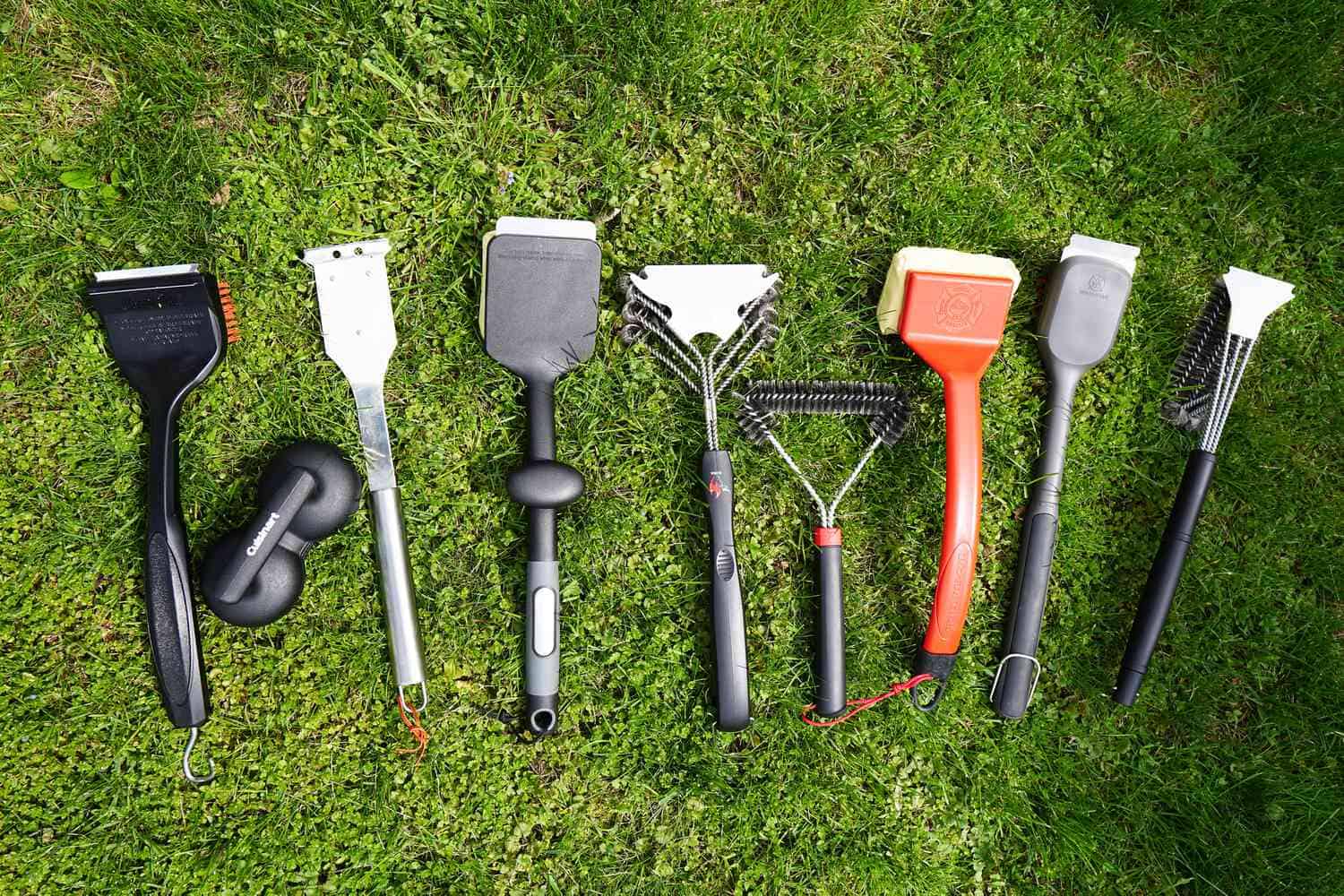
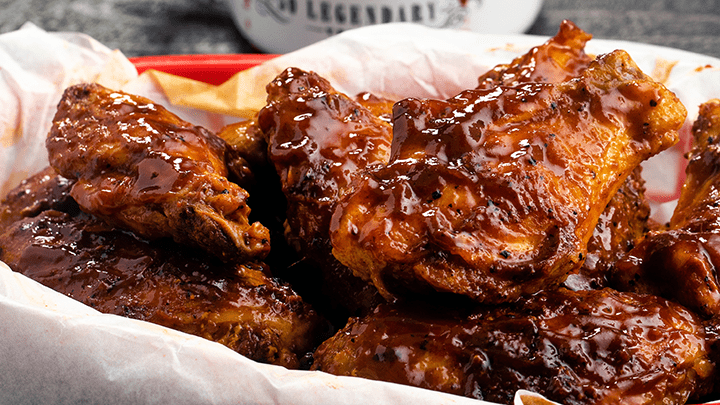
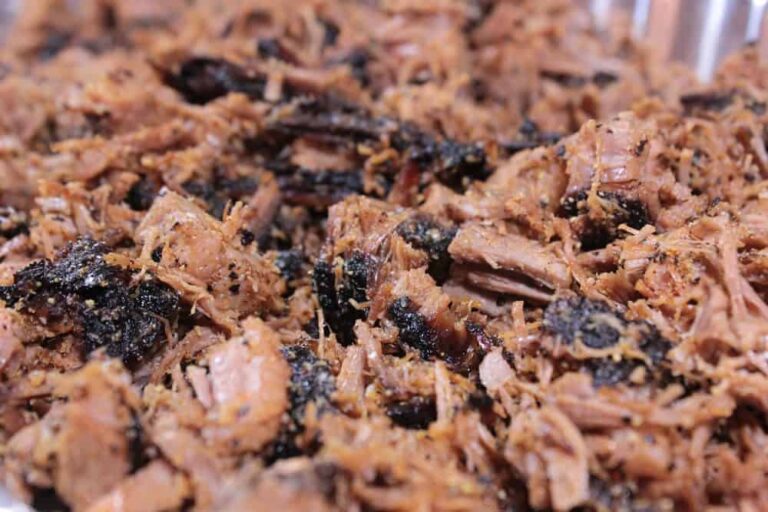

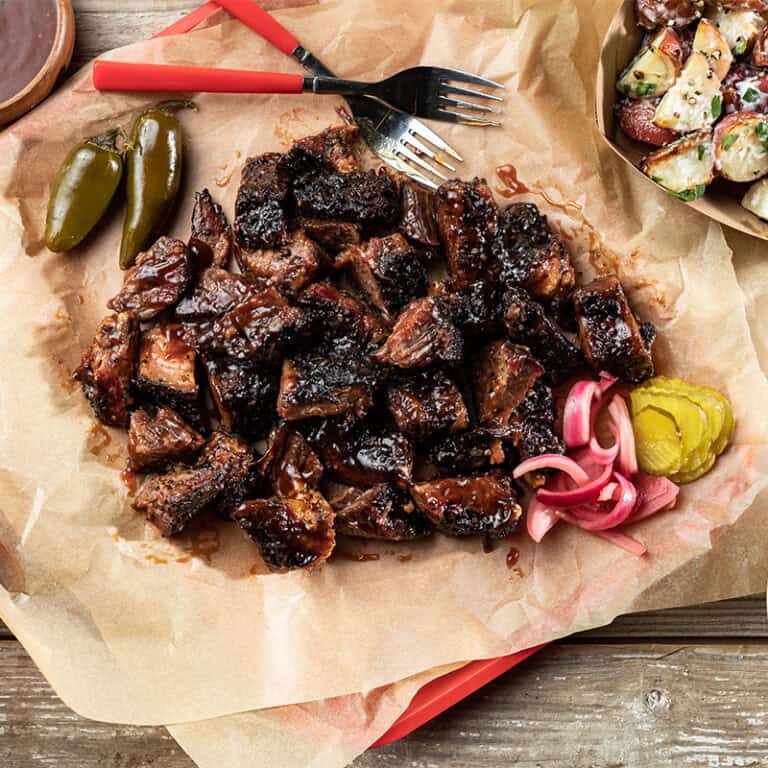
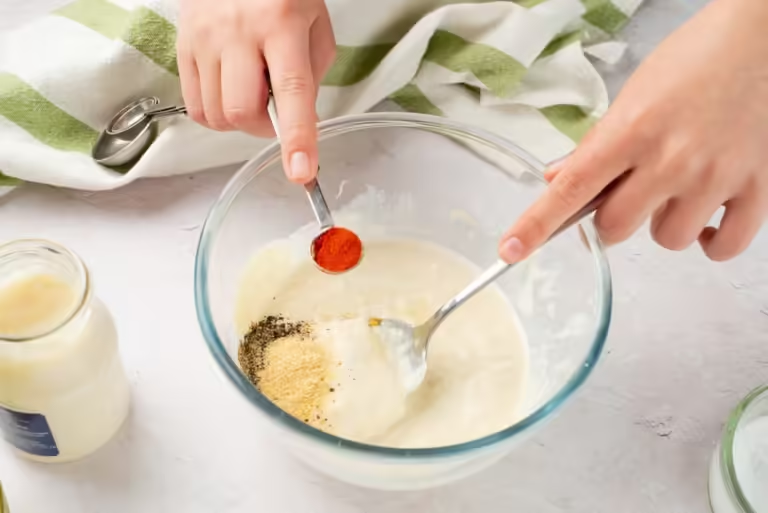

2 Comments